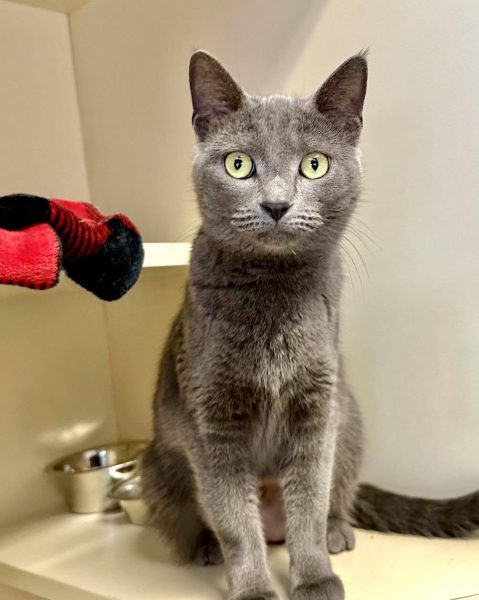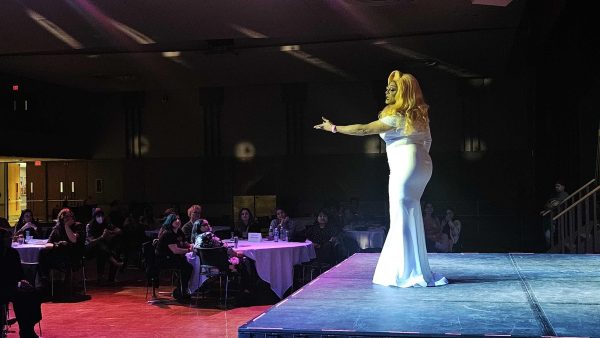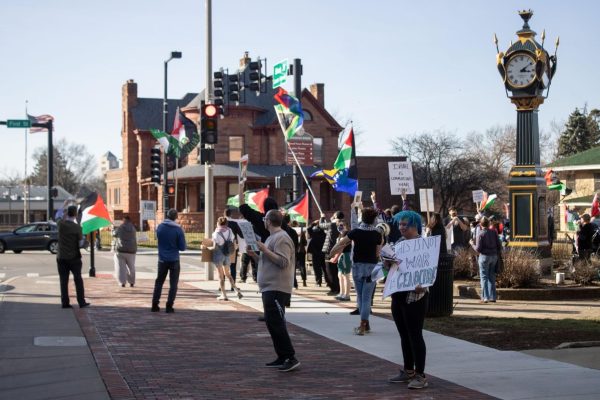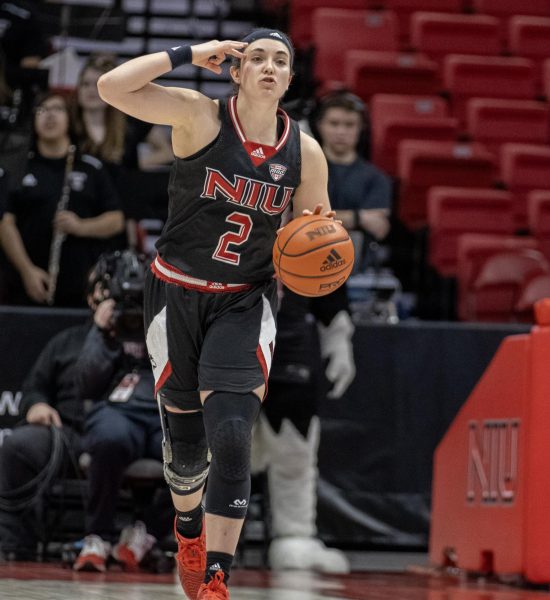Summer Full of Color
September 11, 2018
“POSE” brings to life the unfulfilled dreams and gives a significant voice to minorities who identified as gay or transgender during the 1980’s ballroom scene.
Many of them passed away and never got a chance to live out the lives that they planned. Nevertheless, the FX television series “POSE” exhibits their impact will not only exist within a ballroom.
Producer Janet Mock created this narrative through her writing, cultivating scenes in which she has characters placed in certain situations just to prove a point that not only stood during that time period, but is also meant to be taken in by viewers watching in the present.
The most memorable of instances occurs when Blanca Evangelista, one of the main characters, enters a mainly white gay bar to order a drink. Because she is among those who also experience being outcasted by the majority, Evangelista thinks she will be accepted.
However, the exact opposite happens since she is humiliated every time she tries to stand her ground and demands to be served. At one point, Evangelista has the police called on her and is arrested while all the white men in the bar applaud.
A show like this gives voice to those who are still living in secret. It calls out how we contribute to the taboo and shame-stricken culture we have put upon this community because, like Blanca said, “Everybody needs somebody to make themselves feel superior.”
In 1990, film director Jennie Livingston premiered “Paris Is Burning” in theaters. She exhibited the narratives of African-American, Latino, gay and transgender culture who were involved in the New York ballroom scene in the mid-to-late 1980s . In this film, viewers saw just how lively and influential this culture was to the outside world, even though they were not accepted in it.
Many people who fit into those categories were kicked out their homes and left homeless. They found refuge with each other and created their own families, called “houses.”
In the outside world, they were outcasts and “freaks”; in the ballroom, however, they got to be the person they wished the outside world could see.
Throughout the documentary, a lot of the people involved in this scene talked passionately about the lives they wanted to live. They didn’t want to just exist within the ballroom; they wished to be a star or just be able to live lavishly in the real world.
In “POSE,” the series represents minority transgender and gay characters on a mainstream network, something that would’ve been unimaginable to those who were in Livingston’s documentary.
This is an immensely significant series because while we currently live in a society pushing for a more progressive outlook on life, the topic of gay and transgender people is still labeled as a taboo topic.
25 to 28 transgender people were killed in 2017 in the United States, the highest number in a decade, according to the New York Times.
With a number this high, you would expect some type of big news story to break, yet there doesn’t seem to be any big coverage about this outside of a couple of news story and human rights groups reporting on the issue.
“POSE” is one out of the many shows that is diversifying the entertainment industry.
“To All the Boys I’ve Loved Before” and “Crazy Rich Asians” have also contribute greatly to the entertainment industry and are having a significant economic and social effect on the community.
“Crazy Rich Asians” boasts the first all-Asian cast in 25 years and has had success in the box office by grossing $35 million in its first fives days in theaters, according to NBC news.
The film has also made an additional $28 million in a weekend.
Outside of the economic success, this film has made a monsterous impact on those who are a part of different Asian communities like Kimberly Yam, Huffington Post Asian voice editor.
Yam posted a thread on Twitter talking about her emotional connection with this film and how it has contributed to her fully embracing her Chinese culture.
She shares different instances of her life when she was made to feel ashamed of her culture, like witnessing people dressed up as Asian tourists with tape on their eyes, and having to laugh it off to deal with the situation.
Yam shares how she cried in the theater when watching this film and feeling so embolden by seeing a cast that looks like her, finally feeling good about who she is.
Having an Asian-American lead, like in “To All the Boys I’ve Loved Before,” adds validity to the statement that is shared in an NBC news article about there being a recent push for “Asian-centric stories.”
Representation is extremely important. People who are shown in “Paris is Burning” would be astonished to see faces and bodies that are usually hidden being brought to life through “POSE”. You have no idea what it does for those who have been misrepresented or entirely left out of these films for decades until they finally get a chance to be on the big screen or a mainstream television network.












